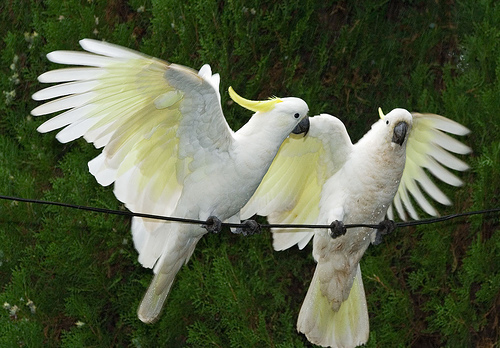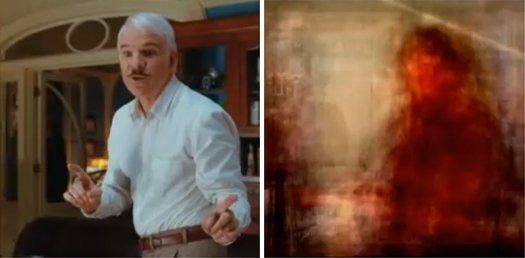Derren Brown's Blog, page 15
October 3, 2011
At last, pointless science answers jimmy riddle
"It was a scientific question that Mirjam Tuk and her colleagues were bursting to answer. While psychology had revealed how human behaviour can be changed by all kinds of feelings, from sexual desire to hunger, an urgent issue had yet to be addressed. What happens to decision-making, the Dutch researchers wondered, when you really, really need the loo?
The team's conclusion — that people make better decisions about some things, and worse decisions about others — was rewarded last night with an Ig Nobel prize, in the annual awards that recognise research that "cannot or should not be reproduced".
At the ceremony at Harvard University yesterday, Dr Tuk and her collaborator Luk Warlop accepted the Medicine Prize, which they shared with Australian scientists who made a similar discovery.
The honours are given to science that "first makes people laugh and then makes them think", and were handed out by seven genuine Nobel laureates.
In Dr Tuk's study, published in the journal Psychological Science, 193 students were asked to take a battery of standard mental tests. They were then split into two groups, one of which was asked to drink five large glasses of water 45 minutes before the tests.
After being suitably primed with a need to relieve themselves, the students were better at identifying colours, but not at identifying the meanings of words.
People who hold off the need to urinate are also better able to resist the temptation to spend money — suggesting that avoiding the loo before a shopping trip might save you money. The Ig Nobel Prize for Chemistry was awarded to a Japanese team led by Makoto Imai, of Shiga University of Medical Science, for their patented invention of an alarm that wakes people up by releasing a pungent wasabi spray.
The Physiology award went to an international team led by Anna Wilkinson, of the University of Lincoln, for an important paper published in Current Zoology entitled "No evidence of contagious yawning in the red-footed tortoise, Geochelone carbonaria".
The Peace Prize was won by Arturas Zuokas, the Mayor of Vilnius, in Lithuania, for his innovative and wholly effective crackdown on illegal parking. Mayor Zuokas took to the wheel of a tank, and ran over offending luxury cars.
Darrell Gwynne and David Rentz were honoured in the Biology category for their discovery that male buprestid beetles sometimes mistake beer bottles for females, and mate with them. A team led by Hernman Kingma, of Maastricht University, won the Physics prize for determining why discus throwers get dizzy, while hammer throwers do not.
The Psychology prize went to Karl Halvor Teigen, of the University of Oslo for research into understanding why people sigh.
John Perry, of Stanford University in California, won the Literature prize for developing a Theory of Structured Procrastination. It says: "To be a high achiever, always work on something important, using it as a way to avoid doing something that's even more important.""
From The Times (Thanks Susanne)
October 1, 2011
Two-headed Cat 'Frankenlouie' Turns 12
"A two-headed cat in Worcester, Mass., has twice the reasons for celebrating his recent birthday: It got him in the Guinness Book of World Records.
The double-domed feline is named "Frankenlouie," and according to its owner, who only wants to be known as Marty, he turned 12 on Sept. 8, according to the Worcester Telegram.
In doing so, he earned a place in the record books for being the longest-lived Janus cat (the term for cats with two heads, which comes from the name of a two-faced Roman god).
"He is the most astounding two-headed animal of all," according to Todd Ray of the Venice Beach Freakshow, who has some by estimates, the largest collection of bizarre animals in the world — including 22 living two-headed animals and a five-legged dog.
Still, he says Frankenlouie is in a class by his two-headed self.
"We might never see another one in our lifetime," Ray told HuffPost Weird News. "I have seen many two-headed animals die within a week. To see one alive for weeks is incredible, but to have one alive for years is truly amazing.""
Read more at Huffington Post (Thanks Annette)
September 30, 2011
Mind-reading car could drive you round the bend

"One of the world's largest motor manufacturers is working with scientists based in Switzerland to design a car that can read its driver's mind and predict his or her next move.
The collaboration, between Nissan and the École Polytechnique Fédérale de Lausanne (EPFL), is intended to balance the necessities of road safety with demands for personal transport.
Scientists at the EPFL have already developed brain-machine interface (BMI) systems that allow wheelchair users to manoeuvre their chairs by thought transference. Their next step will be finding a way to incorporate that technology into the way motorists interact with their cars.
If the endeavour proves successful, the vehicles of the future may be able to prepare themselves for a left or right turn – choosing the correct speed and positioning – by gauging that their drivers are thinking about making such a turn.
However, although BMI technology is well established, the levels of human concentration needed to make it work are extremely high, so the research team is working on systems that will use statistical analysis to predict a driver's next move and to "evaluate a driver's cognitive state relevant to the driving environment".
By measuring brain activity, monitoring patterns of eye movement and scanning the environment around the car, the team thinks the car will be able to predict what a driver is planning to do and help him or her complete the manoeuvre safely."
Read more at The Guardian (Thanks Laurence)
September 29, 2011
Mickey Mouse Mind Control?
[image error]
The article below was published on the Fiji Times:
The latest photo shoots of young TV and music stars reveal some sort of obsession with Mickey Mouse accessories. And there's definitely no danger of running out of these pictures anytime soon. Tons of them appear in the media every week.
Lady Gaga and Beyonce's "Telephone" video clip feature scenes where they're wearing Mickey Mouse hats, sunglasses and minnie mouse trademark lips.
Selena Gomez's "Kiss and Tell" album cover features her with Minnie Mouse lips.
It has been claimed that Mickey Mouse ears or designs often occultly refer to mind control.
According to Wikipedia encyclopedia, The Mickey Mouse Club is an American variety television show that began in 1955, produced by Walt Disney Productions and televised by the ABC, featuring a regular but ever-changing cast of teenage performers. The Mickey Mouse Club was created by Walt Disney. The series has been revived, reformatted and reimagined several times since its initial 1955-1959 run on ABC.
Walter "Walt" Disney (December 5, 1901 – December 15, 1966) was an American film producer, director, screenwriter, voice actor, animator, entrepreneur, entertainer, international icon, and philanthropist, well-known for his influence in the field of entertainment during the 20th century.
Along with his brother Roy O. Disney, he was co-founder of Walt Disney Productions, which later became one of the best-known motion picture producers in the world. The corporation is now known as The Walt Disney Company and has annual revenues of approximately USD $35 billion.
Disney is particularly noted as a film producer and a popular showman, as well as an innovator in animation and theme park design. He and his staff created some of the world's most well-known fictional characters including Mickey Mouse, for whom Disney himself provided the original voice. During his lifetime he received four honorary Academy Awards and won twenty-two Academy Awards from a total of fifty-nine nominations, including a record four in one year, giving him more awards and nominations than any other individual in history. Walt Disney died in on December 15, 1966.
According to several researchers, Disney was part of the CIA's MK-ULTRA program: Its properties were used for mind-control experiments and many of its productions deliberately contained mind-control triggers and symbolism.
You can continue reading at the Fiji Times and, by all means, comment below!
September 28, 2011
The magic dog of Todmorden
[image error]
There has been a flurry of dog-related news recently in the Calder Valley, notably the visit of illusionist Derren Brown to Todmorden. He arrived at Central Vale Park with a camera crew this week to investigate the strange case of the lucky dog statue, which locals say has brought them good luck after patting it.
People claim that they have obtained employment, won raffle prizes and been successful in bonus ball competitions after visiting the canine creation, which is shortly also to feature in a Channel 4 show hosted by Dawn Porter. It is reported that a local landlady was lucky enough to receive the offer of a free gig in her pub by comedian Jason Manford after touching the dog, and in turn, Jason then bumped into Dolly Parton, in a 'pay-it-forward' manner of luck transmission.
Now it seems that people are travelling from as far away as Warwickshire to touch the dog. One explanation for the dog's apparent success may lie with the possibility that people who believe in its powers may feel more positive and go on to succeed in job interviews etc. However, others believe that a totem statue such as the Todmorden dog may have real influence. No doubt public opinion will be divided on the issue.
You can read the rest at The Guardian
September 27, 2011
Virtual monkeys write Shakespeare

"A few million virtual monkeys are close to re-creating the complete works of Shakespeare by randomly mashing keys on virtual typewriters.
A running total of how well they are doing shows that the re-creation is 99.990% complete.
The first single work to be completed was the poem A Lover's Complaint.
Set up by US programmer Jesse Anderson the project co-ordinates the virtual monkeys sitting on Amazon's EC2 cloud computing system via a home PC.
Mr Anderson said he started the project as a way to get to know the Hadoop programming tool better and to put Amazon's web services to the test.
It is also a practical test of the thought experiment that wonders whether an infinite number of monkeys pounding on an infinite number of typewriters would be able to produce Shakespeare's works by accident.
Mr Anderson's virtual monkeys are small computer programs uploaded to Amazon servers. These coded apes regularly pump out random sequences of text.
Each sequence is nine characters long and each is checked to see if that string of characters appears anywhere in the works of Shakespeare. If not, it is discarded. If it does match then progress has been made towards re-creating the works of the Bard.
To get a sense of the scale of the project, there are about 5.5 trillion different combinations of any nine characters from the English alphabet.
Mr Anderson's monkeys are generating random nine-character strings to try to produce all these strings and thereby find those that appear in Shakespeare's works.
Mr Anderson kicked off the project on 21 August using Amazon's cloud computers. Each day of virtual monkey keyboard mashing processing cost $19.20 (£12.40)."
Read more at BBC News (Thanks Tammy)
September 26, 2011
Escaped Pet Birds Are Teaching Wild Birds to Speak English

"Across parts of Australia, reports have been pouring in of strange voices chattering high in the treetops — mysterious, non-sensical conversations in English. But while this phenomenon is certainly quite odd, its explanation isn't paranormal. It turns out that escaped pet birds, namely parrots and cockatoos, have begun teaching their wild bird counterparts a bit of the language they picked up from their time in captivity — and, according to witnesses, that includes more than a few expletives.
Jaynia Sladek, an ornithologist from the Australian Museum, says that some birds are just natural mimickers, able to acquire new sounds based on things they hear around them. For birds kept as pets, these sounds tend to mirror human language — but that influence doesn't cease even after said birds escape or are released back into the wild.
Once back in their natural environments, these chatty ex-pets eventually join with wild birds who, in turn, start picking up the new words and sounds. The remnants of that language also eventually gets passed along to the escaped birds' offspring, much like it does for humans.
"There's no reason why, if one comes into the flock with words, [then] another member of the flock wouldn't pick it up as well," Sladek said in an interview with Australian Geographic.
According to the report, 'Hello cockie' is one of the most commonly heard phrases feral birds are teaching in the wild, along with a host of expletives — perhaps the last words those escapees heard after their frantic owners realized they were making a break for freedom."
Via Treehugger.com (Thanks Damon)
September 25, 2011
Svengali 2012 – Wolverhampton Ticket Release Dates
Derren Brown – Svengali will be on sale for the Grand Theatre, Wolverhampton Mon 30 – Sat 5 May 2012 as follows:
Friends of the Grand priority bookings open: Tues 27 September
Public Bookings open: Fri 30 September
September 24, 2011
Mind-Reading Tech Reconstructs Videos From Brain Images

"A year and a half ago, we published a great feature on the current state of the quest to read the human mind. It included some then in-progress work from Jack Gallant, a neuroscientist at U.C. Berkeley, in which Gallant was attempting to reconstruct a video by reading the brain scans of someone who watched that video–essentially pulling experiences directly from someone's brain. Now, Gallant and his team have published a paper on the subject in the journal Current Biology.
This is the first taste we've gotten of what the study actually produces. Here's a video of the reconstruction in action:
The reconstruction (on the right, obviously) was, according to Gallant, "obtained using only each subject's brain activity and a library of 18 million seconds of random YouTube video that did not include the movies used as stimuli. Brain activity was sampled every one second, and each one-second section of the viewed movie was reconstructed separately.""
Read more at Pop Sci (Thanks Dan)
September 23, 2011
Friday Fun: Drawing Inspiration
[image error]
If you've got a couple of minutes and you fancy having a little fun you could do a lot worse than clicking over to drawastickman.com and doing exactly that.
We won't ruin the surprise for you but take our word for it that it's delightfully imaginative and refreshingly easy on the old mind-grapes.
Thanks to Kerry for alerting us to this.
Derren Brown's Blog
- Derren Brown's profile
- 797 followers



